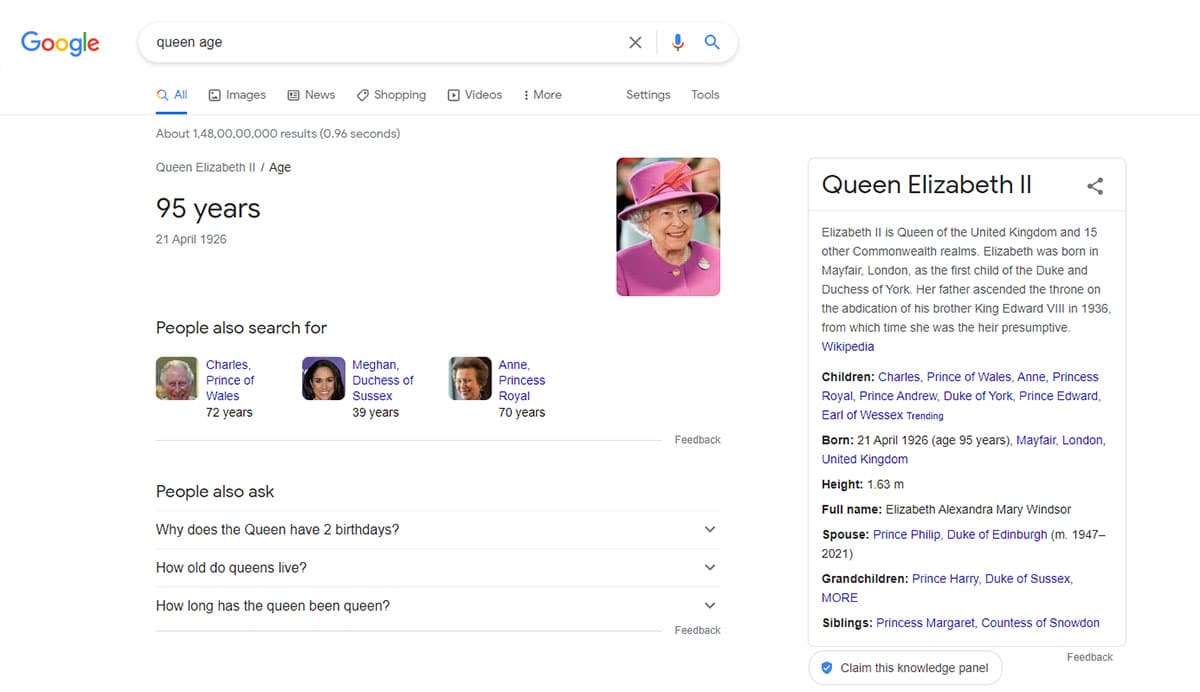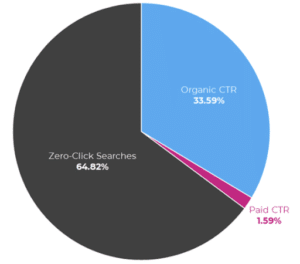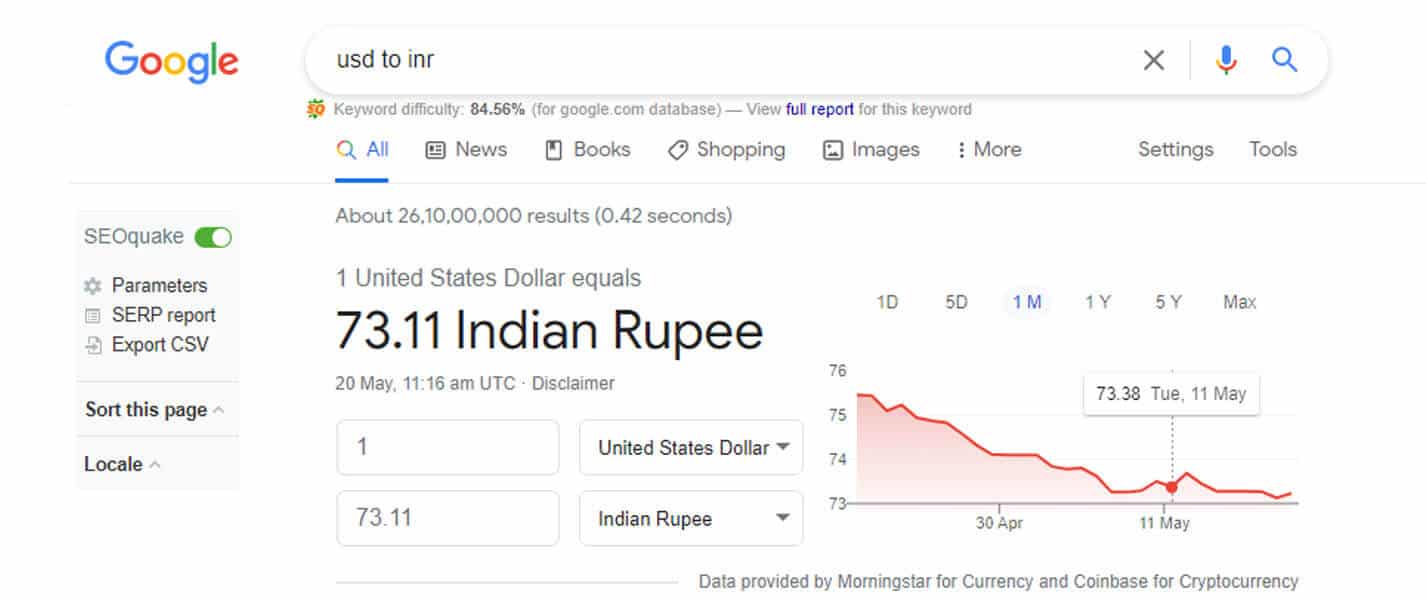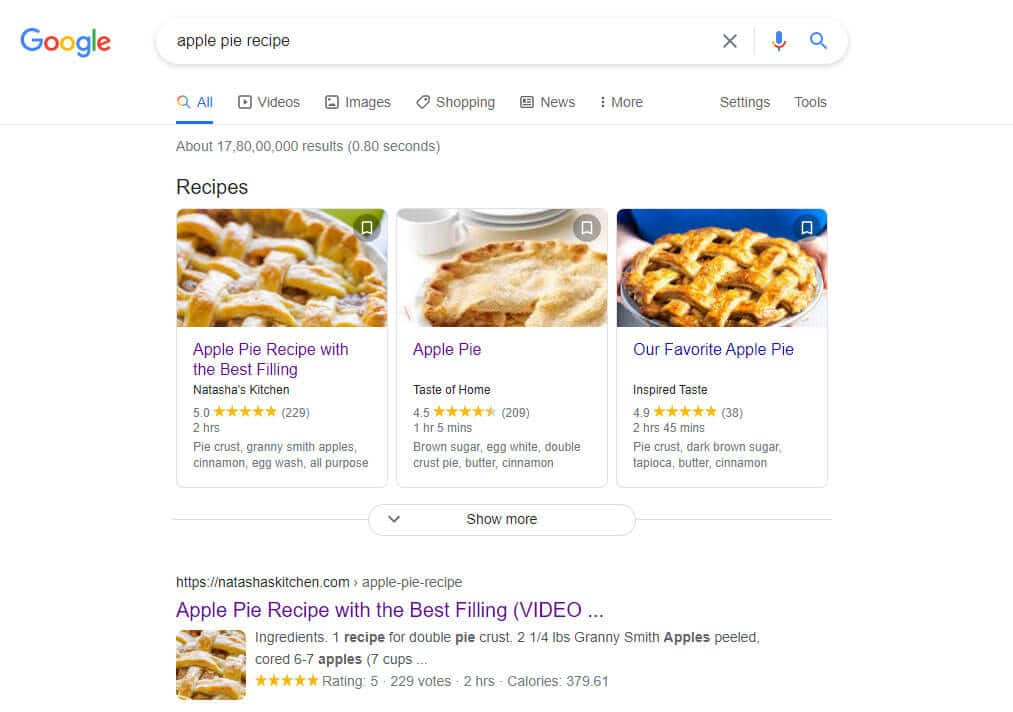The trends of Zero Click Searches are growing with the evolution of the web. As people become more mobile in 2021, the pattern of search engine optimisation keeps on changing and evolving. User related searches have become more dynamic over the years with the introduction and innovation of voice-related searches, and general awareness of the web. One way Google is evolving its user experience is by creating a superior search results algorithm, where a user does not need to click on any link to get the answer they were looking for. The most common example of these searches boils down to currency conversion; time zones; word definitions, and the infamous ‘How to’ questions. Some other areas where these searches are gaining prominence are Database-style searches; maps and directions (best restaurant near me), and Encyclopedia-style searches. This has, however, raised the eyebrows of several lawmakers in different countries as Google can extract value from Zero Clicks, while other sites struggle to make revenues and gain traffic.
No Click Searches or Zero Click Searches Explained
Zero Click or No Click searches are a Search Engine Result Page (SERP) that answers a user’s query right at the top of Google search results.

In the above image, you can see an example of how a No Click search actually works. Similar to this, there are a lot of other search areas where a user would not require any further clicks to complete their search. This kind of search result satisfies the user’s intent without having to actually click on any result links. This can be very frustrating for content creators as Google swipes away a slice of their traffic. However, Google states that it has designed Zero Click searches with users’ best interests at heart.
According to a similar study published by SparkToro, 65% of Google searches between January and December of last year ended without a click to another web link.

The above image clearly shows the dominance of Zero Click searches and the trend has seen a very significant increase over the years. This may be attributed to Covid 19’s impact on user’s online behaviour during the pandemic.
Why People Do Not Click On Search Results
The very simple answer to this is that Zero Click searches are fast. Who wouldn’t want to get all the information in just a single click?

The answer to this question is very clear in regards to the above image. As keywords become more optimised, it will result in even fewer search visits. This has mostly to do with Google owning so much of users data, its sophisticated algorithms understand a user’s pattern and behaviour better than you can even imagine. This also helps Google improve on its user experience, but at the same time, it can leverage this data mine to its own advantage. The range of queries with automated responses keeps on increasing every day as Google explores ways to prevent users from moving on to another site. This leads to complications in measuring SEO efforts as the gaps between the numbers of searches performed, and the numbers of clicks on the searches differ substantially.
What are Feature Snippets?
Often, the Zero Click searches are answered by a knowledge card or a feature snippet. Social experts also use the term ‘Position 0’ to describe feature snippets. The reason for the term is the placement of these snippets above all the other possible organic search results.

Like in this case, a very common Google search on a currency conversion, Google is using Morningstar’s data as a snippet. How this works is Google pulls out a short answer directly into the SERPs, thus removing the need for the user to click on an organic search result. While this makes it convenient for the users and saves their time and effort, it can be a challenge for content creators and digital marketing experts who rely on organic traffic. But, Google has often highlighted that Zero Click results often help a site gain more traffic without creating new content or backlinks. That being said, most of the pages that win feature snippets are often ranked very high on the Google search list. So, that means that improving upon your Google ranking is all the more important or you will be lost in a sea of Google search results at a time when people don’t even have to scroll down for the answers they are looking for.
How to Optimize Featured Snippets
More often than not, featured snippets are not only affecting the simple database searches, but also the complex searches like, ‘recipes’.

In the above image, the snippet is displayed in long-tail keyword phrases. So, if you want your content to be featured by Google in a Zero Click snippet, the trick is to keep the snippet bid as simple as possible. This will make it easier for Google’s algorithm to pick up your post. To be in contention for a featured snippet, it is advised to add questions or keyword terms as a sub header and match the question you are trying to answer. Precise answer placements are the key and a specific 45-60 word answer right below the header will help push your content. And, for ‘how to’ questions, it is advised to use a list. The goal should be to make your answer as factual as possible.
Google’s Dominance with Zero Clicks
With the rise of Zero click searches, Google has amplified its stronghold over the internet world. Google’s dominance in search and marketing continues to be at the heart of several legal battles across the globe. Google faces more than 10 lawsuits in the United States, and numerous other countries around the world.
As Google controls the search results, it has slowly become a major competition for other websites. Most of the websites have started optimising their content according to that, but there are still many who lose a lot of traffic because of the Zero Click searches. The impact of Zero clicks is not evenly distributed across the sectors, but the travel and hospitality websites have taken the biggest hit. The online travel agencies and review platforms have lost a fair share of revenue and organic traffic. This raises a very important question about online regulations and whether if, and when they will be implemented.
Future of Zero Click Searches and Web Browsing
The change in online user behaviour and the shift towards mobile browsing and voice commands becoming more prominent- Google will continue adopting new ways to improve upon and seize other websites traffic and revenue. For now, it is in a far more subtle way and the voices that have been raised have not been heard. But, as Google keeps on churning profit out of Zero Clicks, and at the same time keeps on optimizing the user experience- people are in a bit of an iffy to whether to blame Google or take their side. Just as the Internet giant keeps on evolving, the online content creators will have to do the same. Some experts have sided with Google, throwing an answer to the SERP is more about how users want to access the information, and less about profitability and ad-clicks.
Organic clicks are on a decline and the way Google is heading, it is more likely that we will never go back to the times when page one meant ten organic positions, and at least a single click. So, the most important thing boils down to optimizing the feature snippets and playing along with Google. The only thing that is certain is that Google will keep on making changes to improve the user interface for SERPs, so to stay put in the digital marketing game, the content creators will need to stay up to date with the latest changes.
The natural evolution of content will keep on occurring and the natural unfolding of the progression of the content will mean that simple titbit of information like Elon Musks’ height and Delhi’s weather are not going to be your money-making content in the future. People are not interested in going to a website to get that crumb of information.

